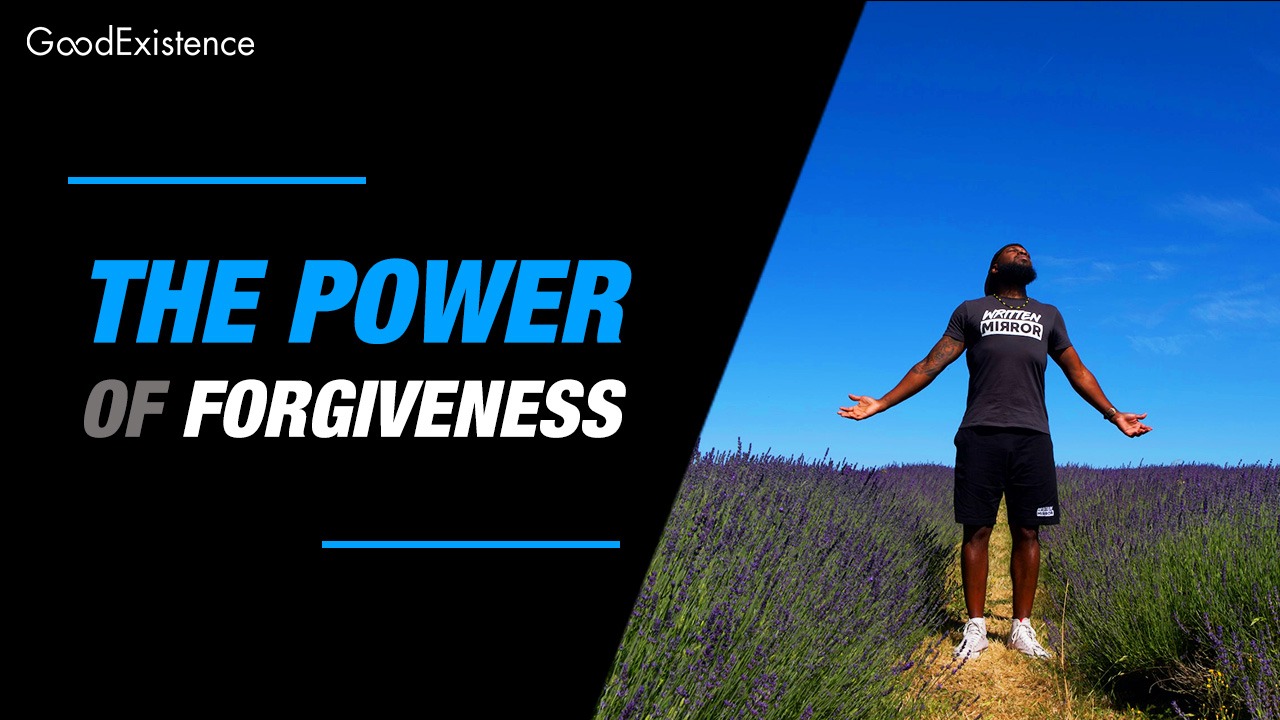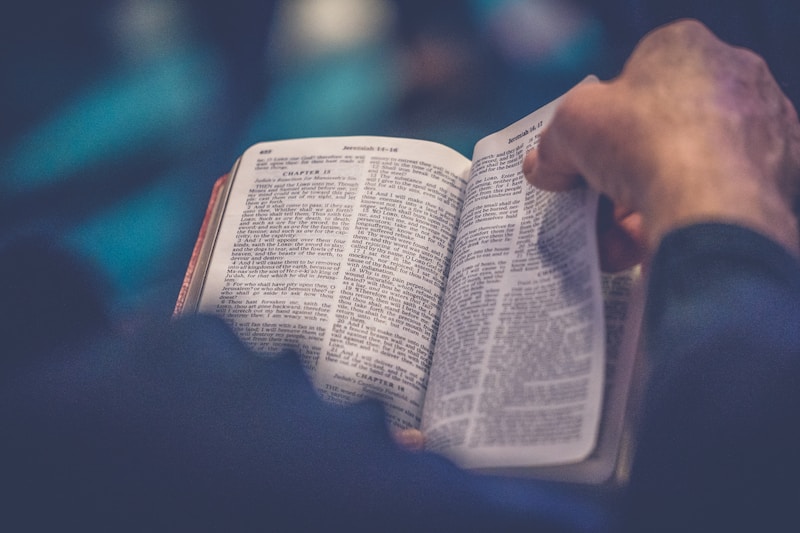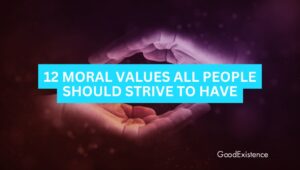Unleash the power of forgiveness and experience its transformative potential to heal wounds, restore relationships, and bring inner peace and freedom. Dive into the profound impact of forgiveness as we explore its ability to ignite healing, foster reconciliation, and liberate your spirit

For Christians, forgiveness takes on even greater significance as it aligns with the teachings and examples found in the Bible.
In this article, we will explore the depth and essence of forgiveness, its impact on our lives, and how we can cultivate a lifestyle marked by forgiveness and grace.
The Meaning and Essence of Forgiveness

In Christianity, forgiveness holds a central and profound place within the framework of faith and spiritual growth. It is not merely a human act but a divine one, rooted in the very nature of God Himself. Through forgiveness, individuals are granted a reprieve from the consequences of their transgressions and are offered a path to redemption and restoration.
The essence of forgiveness can be found throughout the Bible, where God’s nature as a forgiving God is revealed. One of the most well-known passages illustrating this is found in Psalm 103:12, which states:
As far as the east is from the west, so far has he removed our transgressions from us.” Psalm 103:12
This imagery highlights the extent to which God forgives, completely separating our sins from us and granting us a fresh start.
Furthermore, forgiveness is closely tied to the concept of grace. In Ephesians 1:7, the apostle Paul writes:
In Him we have redemption through His blood, the forgiveness of sins, in accordance with the riches of God’s grace.” Ephesians 1:7
This verse emphasizes that forgiveness is not earned or deserved but is a gift freely given by God through His grace. It is an act of divine love and mercy that reflects God’s character and His desire for reconciliation with His creation.
The role of forgiveness in Christian faith and practice extends beyond the individual level.
It permeates relationships, communities, and even nations. Jesus taught His disciples to pray, “Forgive us our debts, as we also have forgiven our debtors” (Matthew 6:12).
This model of forgiveness in the Lord’s Prayer underscores the importance of extending forgiveness to others as we ourselves have been forgiven.
Additionally, the parable of the prodigal son in Luke 15:11-32 showcases the transformative power of forgiveness within family relationships.
Despite the son’s rebellion and the wasting of his inheritance, the father not only welcomes him back with open arms but also celebrates his return.
This parable illustrates God’s unfathomable capacity for forgiveness and demonstrates the call for believers to emulate this forgiving spirit in their own lives.
By unpacking the biblical concept of forgiveness, we come to recognize its true depth and significance. It is a reflection of God’s nature, an act of grace and mercy that offers redemption and restoration.
As Christians, we are called to extend this same forgiveness to others, recognizing the transformative power it holds and the role it plays in our journey of faith and spiritual growth.
Understanding the Impact of Unforgiveness

Holding onto grudges and refusing to forgive can have far-reaching consequences that affect various aspects of our lives.
The emotional and psychological burdens of unforgiveness can be overwhelming, casting a dark shadow over our well-being and hindering our ability to find true peace and happiness.
The weight of unforgiveness is aptly described in Proverbs 14:30, which states, “A heart at peace gives life to the body, but envy rots the bones.”
When we harbor bitterness and resentment, our hearts become heavy and burdened, robbing us of the peace and joy that God intends for us. The accumulation of negative emotions like anger, hatred, and revenge can lead to increased stress, anxiety, and even depression.
The toxic thoughts associated with unforgiveness can consume our minds, robbing us of mental clarity and hindering our ability to experience genuine happiness.
Moreover, the effects of unforgiveness extend beyond the emotional realm and manifest physically. Research has shown that individuals who hold onto grudges and refuse to forgive are more likely to experience a range of health issues, including high blood pressure, a weakened immune system, and even cardiovascular problems.
The stress caused by carrying the weight of resentment can have a detrimental impact on our physical well-being, compromising our overall health and quality of life.
Unforgiveness also acts as a barrier to personal growth and spiritual development.
By clinging to past hurts and refusing to let go, we are trapped in a cycle of negativity that inhibits our ability to move forward and experience the fullness of life.
Unforgiveness hinders our capacity to form meaningful connections and maintain healthy relationships, preventing us from cultivating love, compassion, and empathy.
In contrast, forgiveness opens the door to personal growth and spiritual transformation. By choosing to forgive, we release ourselves from the chains of resentment and allow healing and restoration to take place.
As we let go of the burden of unforgiveness, we create space in our hearts and minds for personal growth, inner peace, and the cultivation of virtues such as kindness, humility, and patience.
Recognizing the impact of unforgiveness is crucial in understanding the urgency and necessity of forgiveness. It is not merely an act of letting go for the sake of others, but a transformative process that brings healing and freedom to our own lives.
By embracing forgiveness, we break free from the shackles of bitterness and open ourselves up to a path of personal growth, emotional well-being, and spiritual fulfillment.
Biblical Examples of Forgiveness

The Bible provides us with profound examples of forgiveness that serve as beacons of hope and inspiration, guiding believers in their own journeys of forgiveness.
These biblical accounts not only reveal the transformative power of forgiveness but also illustrate the depths of God’s grace and mercy towards humanity.
The ultimate act of forgiveness is exemplified in the sacrifice of Jesus on the cross. Despite being unjustly accused, mocked, and crucified, Jesus demonstrated extraordinary forgiveness by praying:
Father, forgive them, for they do not know what they are doing” Luke 23:34
At that moment, Jesus extended forgiveness to those who had caused Him unimaginable pain, setting an unparalleled example of selfless love and mercy.
Another remarkable example of forgiveness is found in the story of Joseph and his brothers. In the book of Genesis, Joseph’s brothers betrayed him, selling him into slavery out of jealousy. Yet, when Joseph was eventually reunited with his brothers and had the power to seek revenge, he instead chose forgiveness.
Joseph said to his brothers:
And now, do not be distressed and do not be angry with yourselves for selling me here, because it was to save lives that God sent me ahead of you.” Genesis 45:5 (NIV)
Joseph recognized that God’s greater purpose was at work, and he chose forgiveness over bitterness and vengeance, ultimately reconciling with his brothers and restoring their relationship.
Additionally, the Psalms provide us with David’s heartfelt plea for forgiveness. In Psalm 51, David acknowledges his sins and humbly seeks God’s forgiveness, saying:
Create in me a pure heart, O God, and renew a steadfast spirit within me” Psalm 51:10
David’s sincere repentance and plea for forgiveness demonstrate the transformative power of seeking God’s mercy and grace, highlighting the redemptive nature of forgiveness in the midst of personal guilt and remorse.
These biblical examples of forgiveness serve as powerful reminders of the capacity for transformation and restoration that forgiveness holds. They teach us that forgiveness is not merely a human virtue but a divine mandate rooted in God’s character of love, compassion, and mercy.
As we encounter these stories, we are encouraged to follow in the footsteps of Jesus, Joseph, and David, embracing forgiveness as a transformative act that brings healing, reconciliation, and spiritual growth in the face of betrayal and wrongdoing.
The Process of Forgiveness

Forgiveness is a transformative journey that encompasses various stages, each essential in the pursuit of healing and restoration. It is a deliberate and intentional process that requires introspection, empathy, and a willingness to let go of pain and resentment.
The first step in the process of forgiveness is acknowledging the pain and hurt caused by the offense.
It entails facing the emotions that arise from the wrongdoing, whether it is betrayal, loss, or deep disappointment. By allowing ourselves to fully experience these emotions, we create space for healing and growth to take place.
Letting go of bitterness and resentment is a vital aspect of forgiveness. It involves consciously choosing to release the offender from the grip of our anger and negative emotions.
This act of releasing does not mean condoning the offense or denying its impact but rather freeing ourselves from the burden of carrying grudges.
As the renowned theologian, Lewis B. Smedes once said:
To forgive is to set a prisoner free and discover that the prisoner was you.” Lewis B. Smedes
By releasing our resentments, we liberate ourselves and open the door to personal transformation.
Extending grace and compassion towards the offender is a fundamental part of the forgiveness process. It requires viewing the person through a lens of empathy and understanding, recognizing their humanity and the capacity for mistakes.
As we choose to extend grace, we create an atmosphere of reconciliation and healing, fostering the potential for restoration in the relationship.
Forgiveness ultimately paves the way for reconciliation and restoration. It opens the door to meaningful dialogue, where both parties can seek understanding, express remorse, and work towards rebuilding trust.
While reconciliation may not always be possible or advisable in every situation, forgiveness allows us to find closure within ourselves and move forward with a sense of peace and freedom.
In the process of forgiveness, we discover our own capacity for growth, resilience, and empathy. It is a transformative journey that not only heals the wounds of the past but also empowers us to cultivate healthier relationships and live a life marked by compassion and grace.
Through forgiveness, we embrace the opportunity to break free from the chains of bitterness and experience the transformative power of healing and growth.
The Healing Power of Forgiveness

Forgiveness has a remarkable power to bring about profound healing and restoration. When we extend forgiveness, we not only liberate the offender from the weight of their actions but also experience a transformative healing within ourselves. It is through the act of forgiveness that we can find emotional healing and inner peace.
Forgiveness has the capacity to heal deep wounds that have caused us pain and suffering. It allows us to release the grip of bitterness and resentment, creating space for emotional healing to take place. As we let go of the hurt inflicted upon us, we open ourselves up to a renewed sense of purpose, joy, and freedom.
The words of Corrie ten Boom, a Holocaust survivor, beautifully capture the healing power of forgiveness:
Forgiveness is an act of the will, and the will can function regardless of the temperature of the heart.”
Moreover, forgiveness serves as a catalyst for rebuilding trust and restoring broken relationships. It provides an opportunity for dialogue, understanding, and reconciliation.
By extending forgiveness, we create a fertile ground for the possibility of a stronger and more meaningful connection with the offender. It takes courage and vulnerability to rebuild trust, but forgiveness opens the door to that potential.
In addition to healing and restoration, forgiveness nurtures personal growth and resilience.
It empowers individuals to overcome challenges and embrace a brighter future. When we choose forgiveness, we demonstrate our ability to rise above the pain and the difficulties that life presents.
Through the process of forgiveness, we cultivate inner strength, resilience, and the capacity to navigate adversity with grace and compassion.
The journey of forgiveness is not without its challenges, but it is through this transformative act that we can experience the profound healing of wounds, restoration of relationships, and personal growth.
By embracing forgiveness, we unleash its remarkable power to bring healing, wholeness, and a renewed sense of purpose to our lives.
As we extend forgiveness, we not only bless others but also embark on a path towards our own emotional well-being, inner peace, and a brighter future filled with hope.
Overcoming Challenges in Forgiveness

Forgiveness can be a challenging and complex process, particularly in situations involving deep-rooted anger and betrayal. Confronting these emotions and facing the fear of vulnerability can be daunting.
However, through faith in God’s guidance and grace, we find the strength to navigate these obstacles and extend forgiveness. It is through reliance on a higher power that we can overcome our own limitations and experience true liberation.
Extending Forgiveness to Oneself
While forgiveness often involves pardoning others, it is equally important to extend forgiveness to oneself. Recognizing the need for self-forgiveness in the Christian journey is essential.
When we acknowledge our mistakes and shortcomings, we can let go of guilt and shame through God’s forgiveness. Embracing self-compassion and acceptance enables us to experience the fullness of God’s grace and embark on a path of personal healing and growth.
This is even more apparent through the act of Confession. I speak from personal experience here but I surely feel more free and better after confessing my problems, fallouts, or past sins with a priest.
Cultivating a Lifestyle of Forgiveness

Forgiveness is not meant to be a singular act confined to specific circumstances; rather, it is a way of life that should permeate every aspect of our being. Cultivating a lifestyle of forgiveness requires intentionality, self-reflection, and a commitment to grace.
By incorporating forgiveness into our daily interactions, we become agents of change, spreading the transformative power of forgiveness to those around us.
One crucial aspect of cultivating a lifestyle of forgiveness is teaching and modeling forgiveness to future generations. Children and young adults observe and learn from the examples set before them.
By demonstrating forgiveness in our relationships and actively teaching its importance, we ensure that the legacy of compassion and reconciliation lives on.
It is through this intentional transmission of values and beliefs that the seeds of forgiveness are sown, fostering a culture of understanding and grace for years to come.
As we embark on the journey of forgiveness, seeking spiritual guidance and support from the Christian community becomes paramount.
Engaging with fellow believers who share a common commitment to forgiveness can provide us with the strength, encouragement, and accountability needed to navigate the challenges that arise.
Through prayer, fellowship, and studying God’s Word, we draw upon the wisdom and teachings of the Christian faith, deepening our understanding of forgiveness and its transformative power.
In cultivating a lifestyle of forgiveness, it is essential to recognize that forgiveness does not imply condoning or forgetting the offenses committed against us.
Rather, it is a conscious decision to release the burden of resentment and choose a path of healing and reconciliation. It involves setting healthy boundaries, fostering accountability, and actively working toward restoration when appropriate.
When we embrace forgiveness as a way of life, we embody the teachings of Christ, who commanded us to forgive others as we have been forgiven. In doing so, we become conduits of God’s grace, reflecting His love and mercy to a world in need.
Cultivating a lifestyle of forgiveness is an ongoing process, but its rewards are immeasurable, as it brings us closer to God, nurtures healthier relationships, and enables us to experience the transformative power of grace in our own lives.
The Liberating Joy of Forgiveness
Embracing forgiveness liberates us from the chains of resentment and bitterness. It frees us to experience joy, peace, and harmony in our lives and relationships.
When we choose forgiveness, we embrace the abundant life that God desires for us. Our act of forgiveness can inspire others, demonstrating the power and beauty of grace in action.
The Power of Forgiveness: Final Words
In conclusion, the transformative power of forgiveness cannot be underestimated. From a Christian perspective, forgiveness is not only an act of mercy but also an essential aspect of faith and spiritual growth.
By understanding its meaning, acknowledging the impact of unforgiveness, and following the examples set forth in the Bible, we can embark on a journey of healing, reconciliation, and personal transformation.
Let us embrace the power of forgiveness, extending grace and compassion to others, and cultivating a lifestyle marked by forgiveness and grace.




